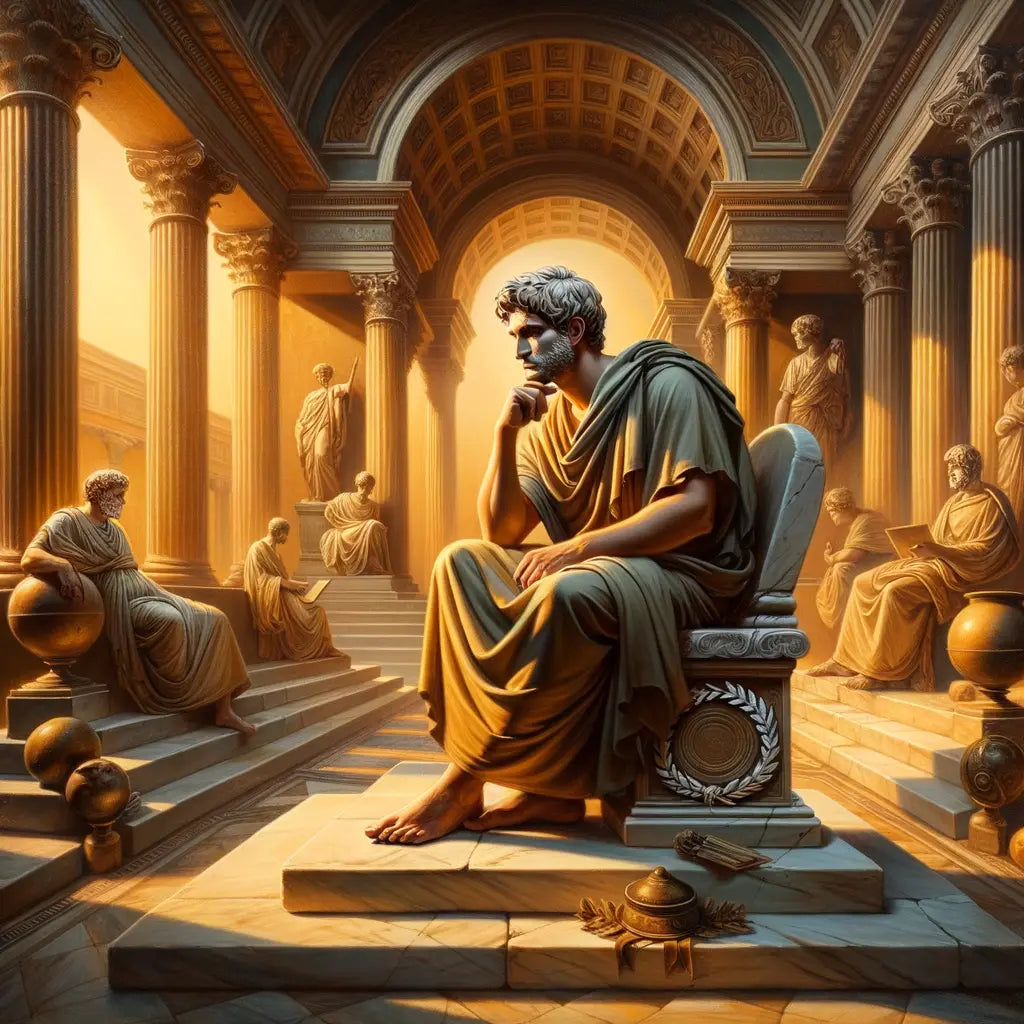
Was Marcus Aurelius a Good or Bad Emperor?
Was Marcus Aurelius a Good or Bad Emperor? A Stoic Examination
What really makes a ruler great? Is it their conquests or the legacy of wisdom and virtue they leave behind? Marcus Aurelius, the Stoic emperor of Rome, invites us to explore these profound questions. Known not only for his rule but also for his philosophical reflections in 'Meditations,' Marcus Aurelius presents a figure woven with complexity and moral insight. Let's delve into his life and leadership to discover the heart of his reign.
Marcus Aurelius guided the Roman Empire from 161 to 180 AD, a time filled with both external invasions and internal struggles. Despite these challenges, he steadfastly upheld justice and reason. Some might see him as a wise sage steering through chaos, closely adhering to his Stoic beliefs. This philosophy, emphasizing self-discipline and rationality, cherishes the common good over personal gain. So, how did his values shape his rule?
The Stoic Emperor: Guided by Virtue and Reason
Aurelius's life exemplified Stoic values. He strongly believed in the power of virtue—the moral righteousness above all else. His 'Meditations' brim with thoughts on living a life in tune with higher principles. Imagine a book revealing not the dreams of a conqueror, but the reflections of a philosopher-king, posing questions that still resonate today.
In adversity, whether during the Marcomannic Wars or the Antonine Plague, Marcus Aurelius showed unwavering dedication to duty. He was not driven by power or wealth. His focus was on his people's well-being and the fair administration of justice. Isn't it inspiring to think of a leader whose primary goal was the welfare of others?
Military Challenges and Philosophical Fortitude
Marcus Aurelius’s reign faced more than philosophical musings; it dealt with the harsh realities of war and disease. The Roman Empire was often under threat, demanding a leader who commanded respect not just by might, but through integrity. Here, Aurelius’s Stoic teachings shine, offering lessons on how virtue and rationality can conquer even the toughest of challenges.
The 'Meditations' are more than a personal diary; they offer insightful glimpses into an emperor’s mind during turmoil. Have you ever read one of his lines and felt a connection with your own life? His focus on staying calm and grounded might just make you nod in agreement, even after centuries.
An Imperfect But Noble Ruler
No emperor is without flaws. Criticisms exist about Aurelius’s military strategies and economic decisions. Yet, what leader is perfect? The real measure of his legacy lies not in victories or material wealth, but in the values he stood for. Marcus Aurelius demonstrated that true leadership is in serving others—showing that power and virtue can coexist harmoniously.

Interested in owning a symbol of this philosophical legacy? Discover this Marcus Aurelius Enamel Pin. It captures the spirit of reason and virtue, perfect for anyone inspired by the wisdom of the Stoic emperor.
The Lasting Legacy of Meditations
Marcus Aurelius is often praised as one of the last great emperors of Rome. While his reign ended long ago, the enduring echoes of his thoughts in 'Meditations' continue to influence today. This work is not just a historical piece; it's a guide for living with integrity and clarity amidst life's noise.
When we think of leaders today, don’t we yearn for someone as anchored in virtue as Marcus Aurelius? In a world where power often leads to corruption, his example shows us that true strength lies in righteousness and self-control. Perhaps we can all learn from the discipline and wisdom within his simple yet profound writings.
Was Marcus Aurelius a Good or Bad Emperor?
Opinions about Marcus Aurelius vary, viewing him as a philosopher-king or a troubled ruler. However, if we evaluate him by his pursuit of reason and virtue, he surely ranks among the good. His life and thoughts are a beacon for those seeking ethical governance and principled leadership.
Understanding Marcus Aurelius means stepping into the mind of a ruler whose reflections transcend time, urging us to consider our values and actions. As we ponder on Marcus’s legacy, think about embracing a piece of his philosophy, even if it’s as simple as carrying a reminder of his enduring wisdom.
Consider this: Marcus Aurelius Enamel Pin, a keepsake symbolizing the strength found in virtue and the calm of reflection.
So, what do you think? Was he a good emperor? Perhaps the answer lies not just in historical records, but in the shared ideals that continue to resonate through the ages.
What made Marcus Aurelius a notable ruler?
Marcus Aurelius was known for his Stoic principles, focusing on reason, virtue, and the welfare of the Roman people during times of war and plague.
How did Marcus Aurelius’s 'Meditations' influence his rule?
'Meditations' offered insights into Aurelius’s values and philosophies, guiding his decisions with a focus on service and ethical leadership.
Why is Marcus Aurelius still relevant today?
His focus on ethical governance, virtue, and self-discipline resonates with contemporary leaders seeking principled leadership.

